Data Management According to the DCAM Model
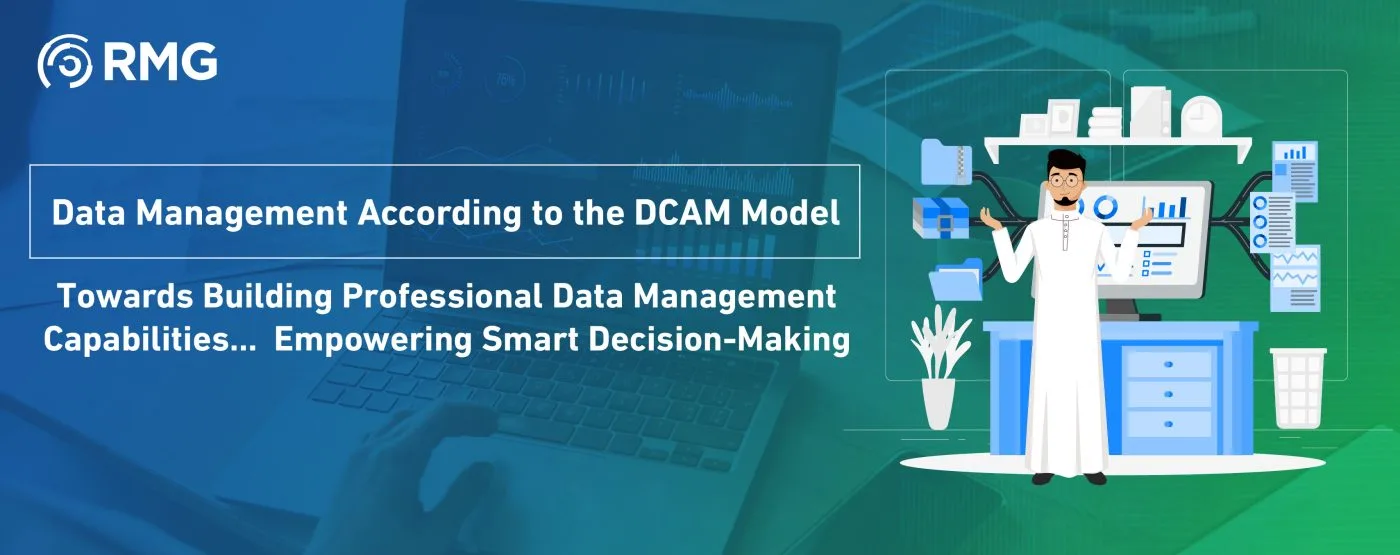

Data Management and Governance Solutions for Sustainable Success
Towards Building Professional Data Management Capabilities… Empowering Smart Decision-Making Choose Renad Al Majd, where data management becomes easier, more effective, and efficient. Let us help you achieve success in the world of data!
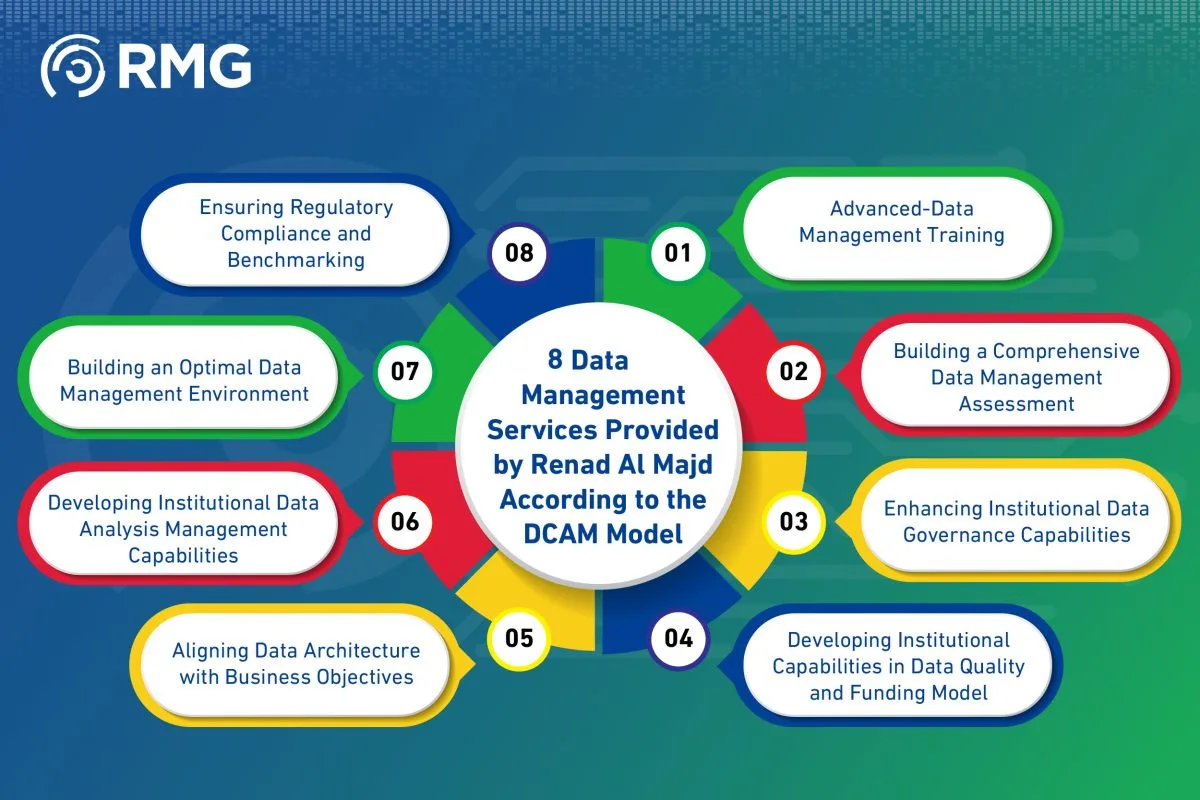
Advanced-Data Management Training According to the DCAM Model
Make data management the foundation of your successful future decisions.
We offer specialized training for institutions on the DCAM model, the most comprehensive framework for data management.
The training covers essential topics, including:
Data Governance Framework
: Learn how to set policies and standards to ensure compliance and regulation.
Risk Management
Understand the risks associated with data and how to manage them effectively.
Data Quality Strategies
Enhance data integration and accuracy to ensure decisions are based on reliable information.
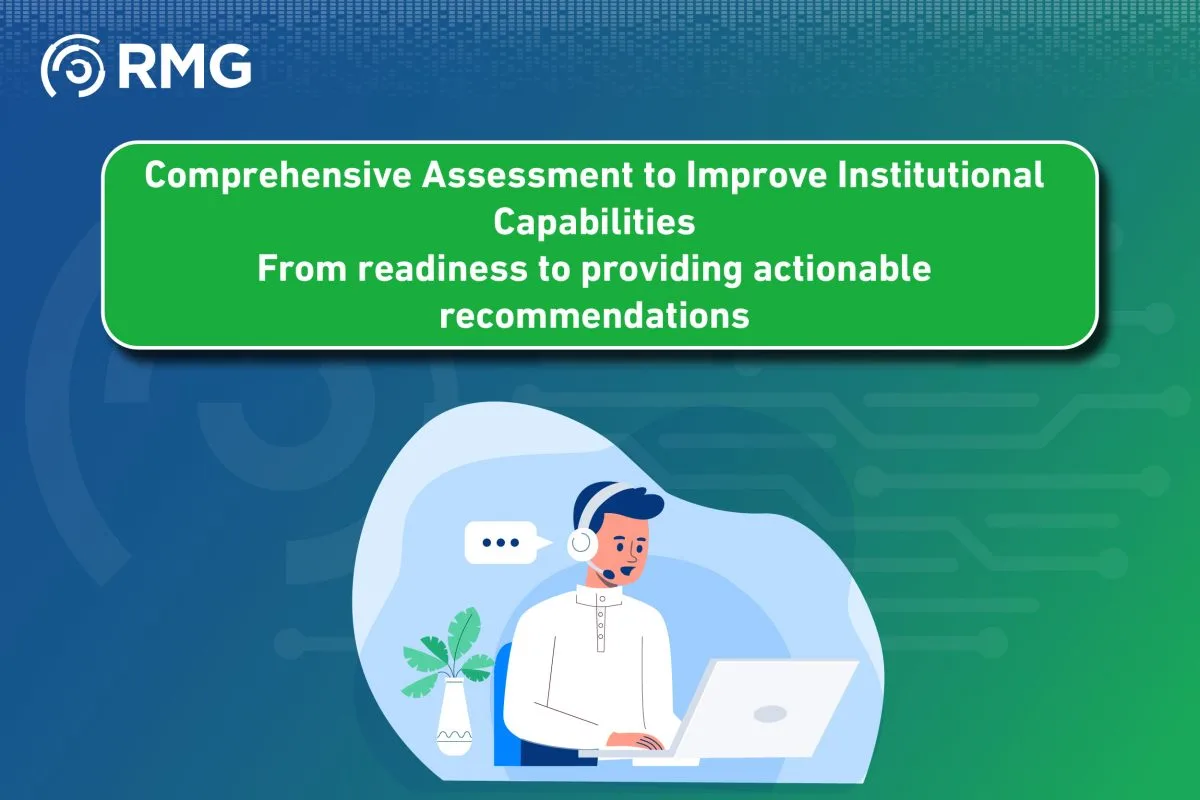
Building a Comprehensive Data Management Assessment
Your roadmap to enhancing data capabilities begins here.
With our specialized and precise assessment, uncover your organization’s data management maturity and outperform the competition.
We provide professional and comprehensive institutional assessment services based on the DCAM model!
We assess organizational readiness and analyze data management maturity through:
Institutional Readiness
Evaluating the organization’s preparedness to adopt best practices.
Maturity Assessment
Determining maturity levels in governance and quality.
Executive Recommendations
Providing a roadmap for sustainable improvement.
Building Data Analysis Capabilities
Analyze data that understands your organization and its operations for higher efficiency and better performance!
We help organizations build data analysis capabilities in effective and integrated ways, including:
- Technical Data and Business Data Management: Classifying data and facilitating access.
- System Integration: Ensuring smooth data flow between different systems.
- Enhancing Information Infrastructure
- Understanding Data Processing and Cleansing Techniques
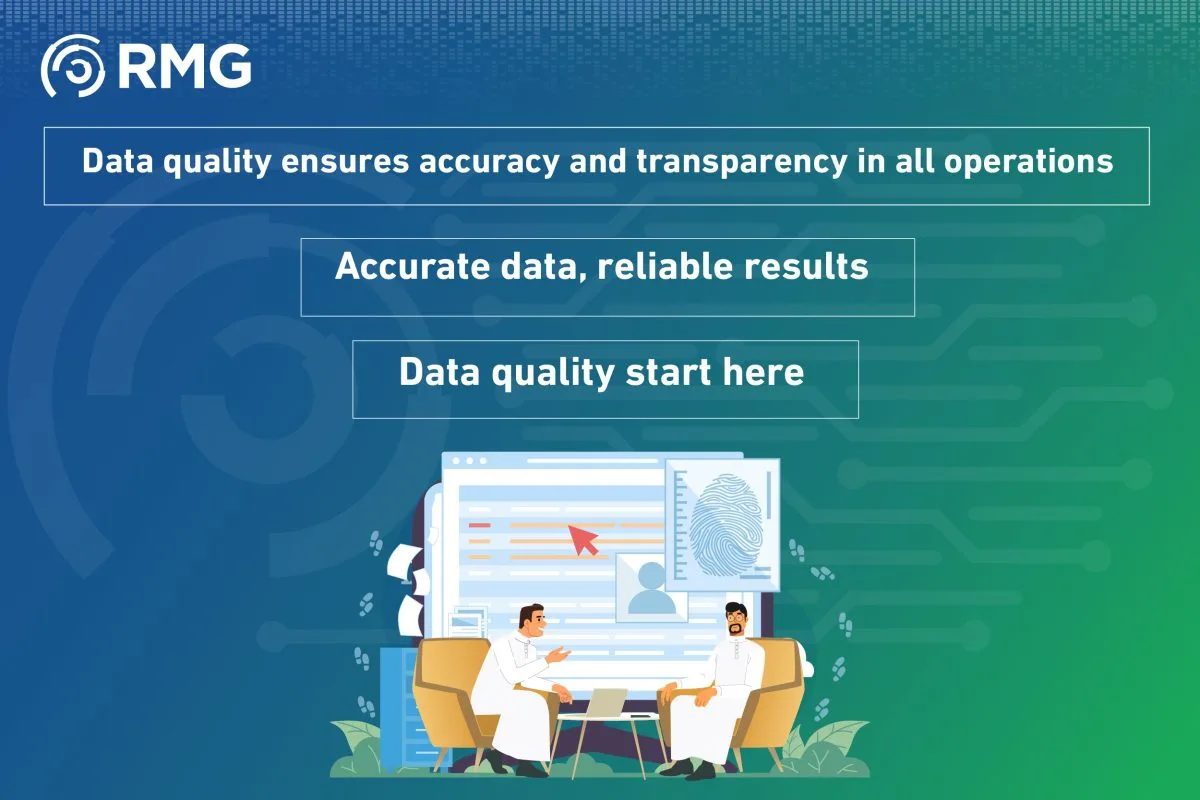
Building Data Quality Capabilities and Financial Model
We make your data quality a core element of your business success!
We specialize in improving data quality to ensure information accuracy according to DCAM standards by:
Analysis and Evaluation
Assessing current data quality and identifying improvement areas.
Applying Improvement Tools
Using error detection techniques, removing duplicate data, and unifying sources.
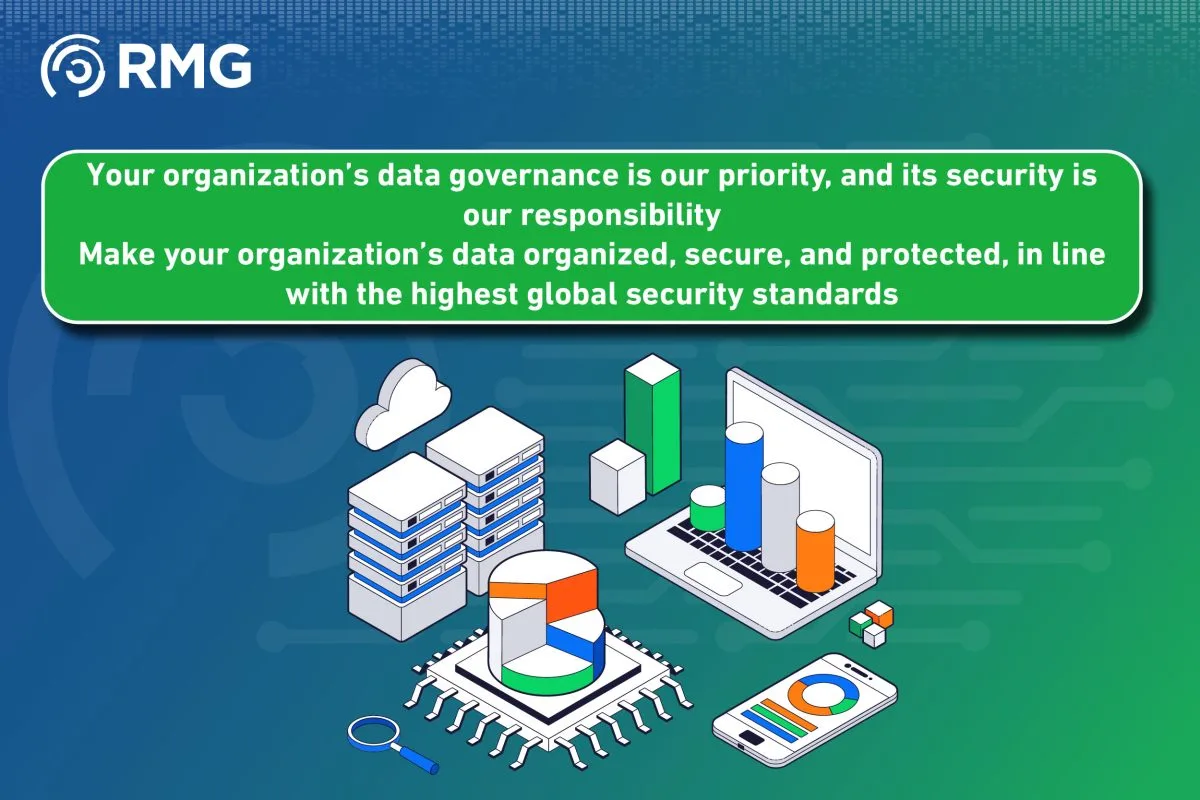
Building Data Governance Capabilities
We follow international best practices, such as the CCPA, to protect data and ensure privacy for your organization and your customers’ data:
- Designing an integrated data governance framework based on organizational characteristics and institutional needs
- Establishing policies and procedures that balance data access and protection
- Compliance and standards assessment: Evaluating compliance with local and international regulations, like GDPR
- Analyzing privacy practices within the organization and ensuring they align with international standards
- Implementing data protection policies to prevent unauthorized use
- Integrating data governance policies with the organization's digital strategies
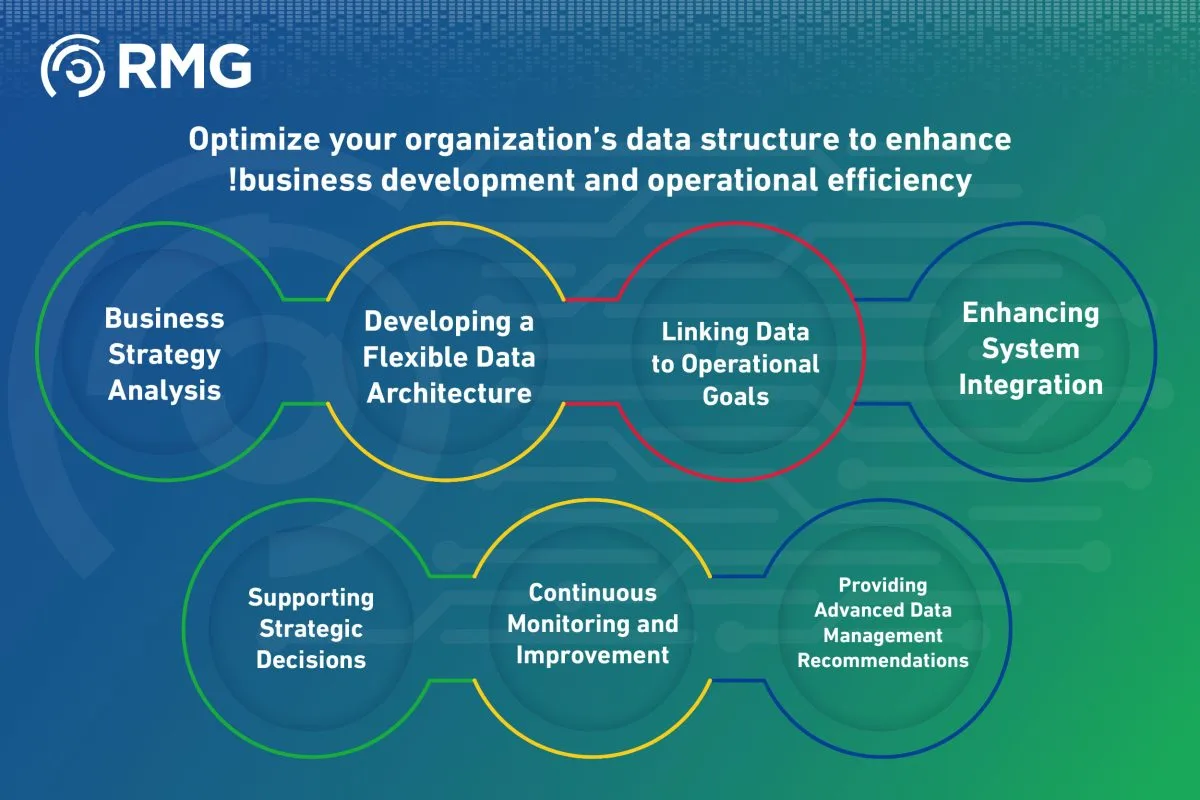
Aligning Data Architecture with Business Objectives
We help you connect your organization’s strategic goals with its data architecture to improve performance and ensure effective data use!
We analyze the current data architecture and assess existing risks, offering advanced solutions for professional alignment:
- Business Strategy Analysis
- Understanding and evaluating strategic goals
- Designing a flexible data architecture that meets evolving business needs
- Building a system that facilitates data access and analysis
- Identifying core data requirements and supporting infrastructure
- Assessing risks from daily operations (storage, processing, and transfer)
- Developing risk mitigation strategies to ensure business continuity
- Providing professional recommendations for data management
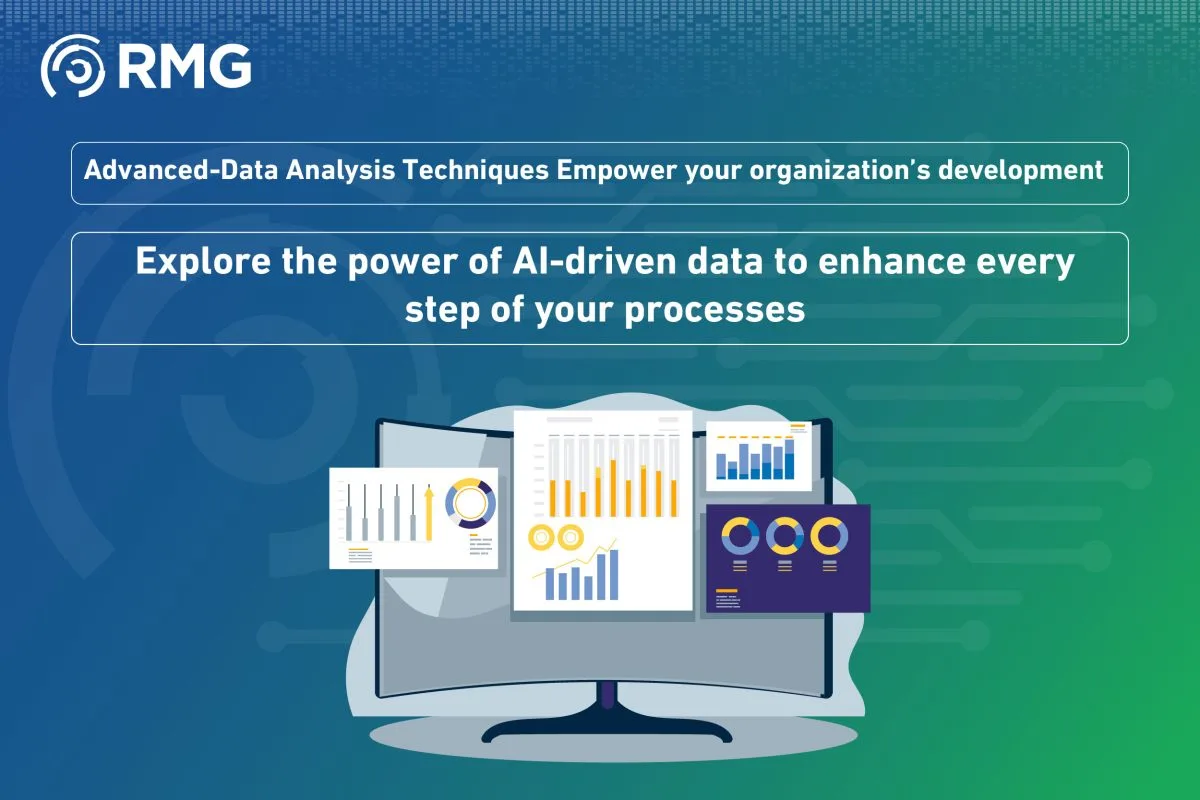
Building an Optimal Data Management Environment
We offer advanced analytics solutions to support and establish a professional data management environment and develop institutions’ analytical capabilities:
- Data Analytics: Provide analytical models that aid in making precise decisions.
- Data Analysis Algorithms: Offer algorithms that support data-driven decision-making.
- AI Support: Delivering AI techniques for data analysis and process improvement.
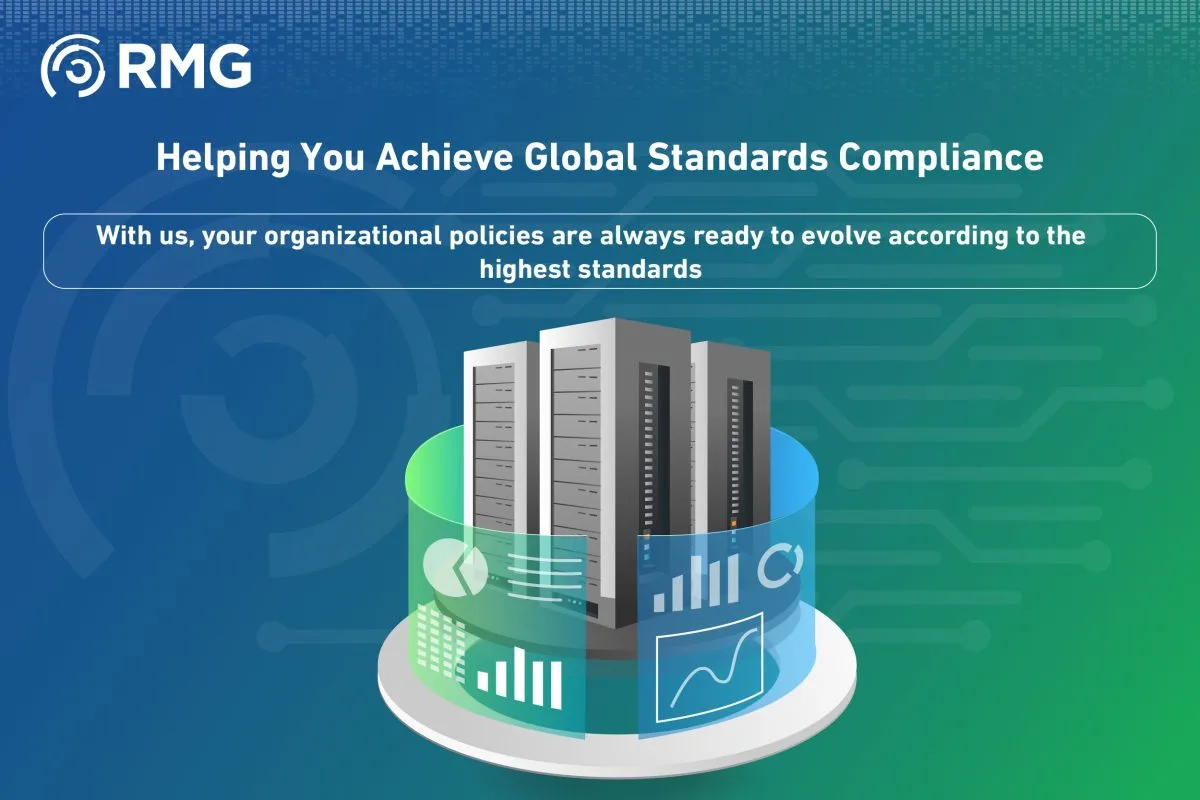
Achieving Regulatory Compliance and Standards Assessment
We help you achieve compliance that brings peace of mind and effectively supports business continuity!
We ensure that institutions’ data management systems comply with local regulations and international standards:
- Policy Review: Analyzing and improving policies for ongoing compliance.
- Continuous Compliance: Implement sustainable monitoring programs and continuous assessments to enhance data management.
- Providing Professional Recommendations to improve institutional policies.
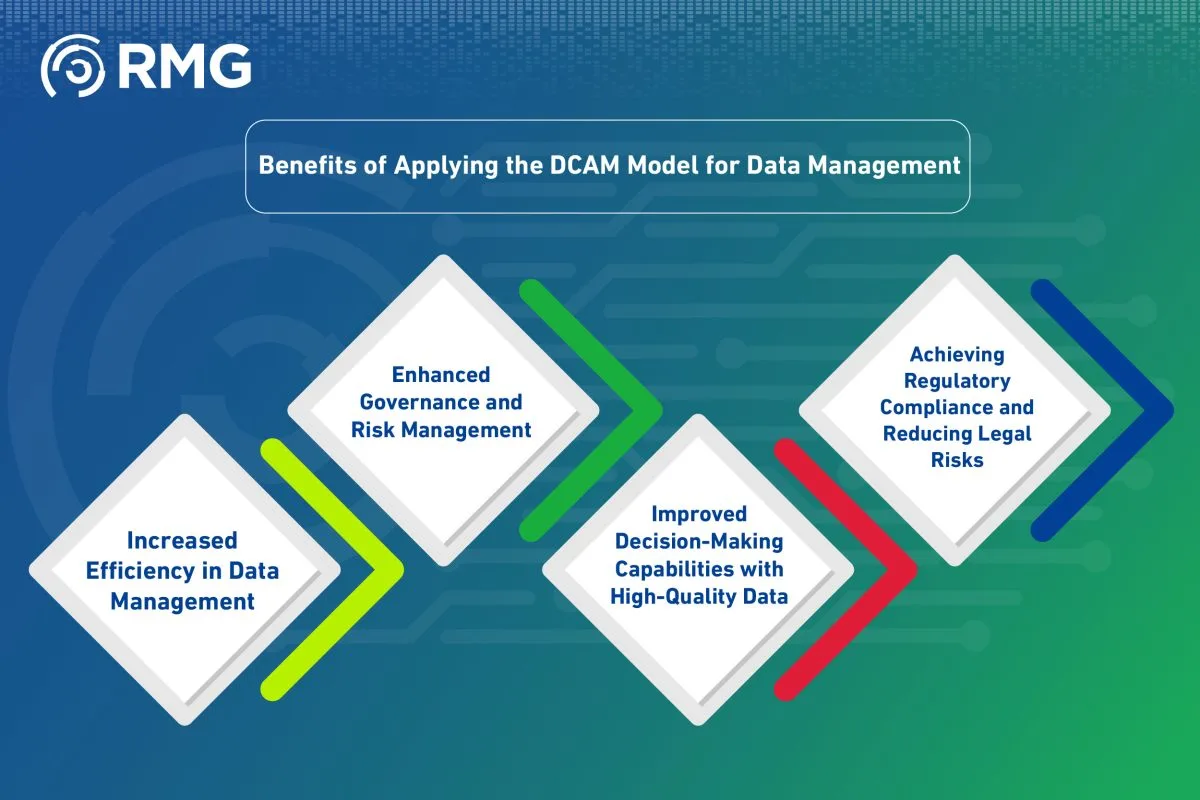
Benefits of Applying the DCAM Model for Data Management
Increased Efficiency in Data Management
Enhanced Governance and Risk Management
Improved Decision-Making Capabilities with High-Quality Data
Achieving Regulatory Compliance and Reducing Legal Risks
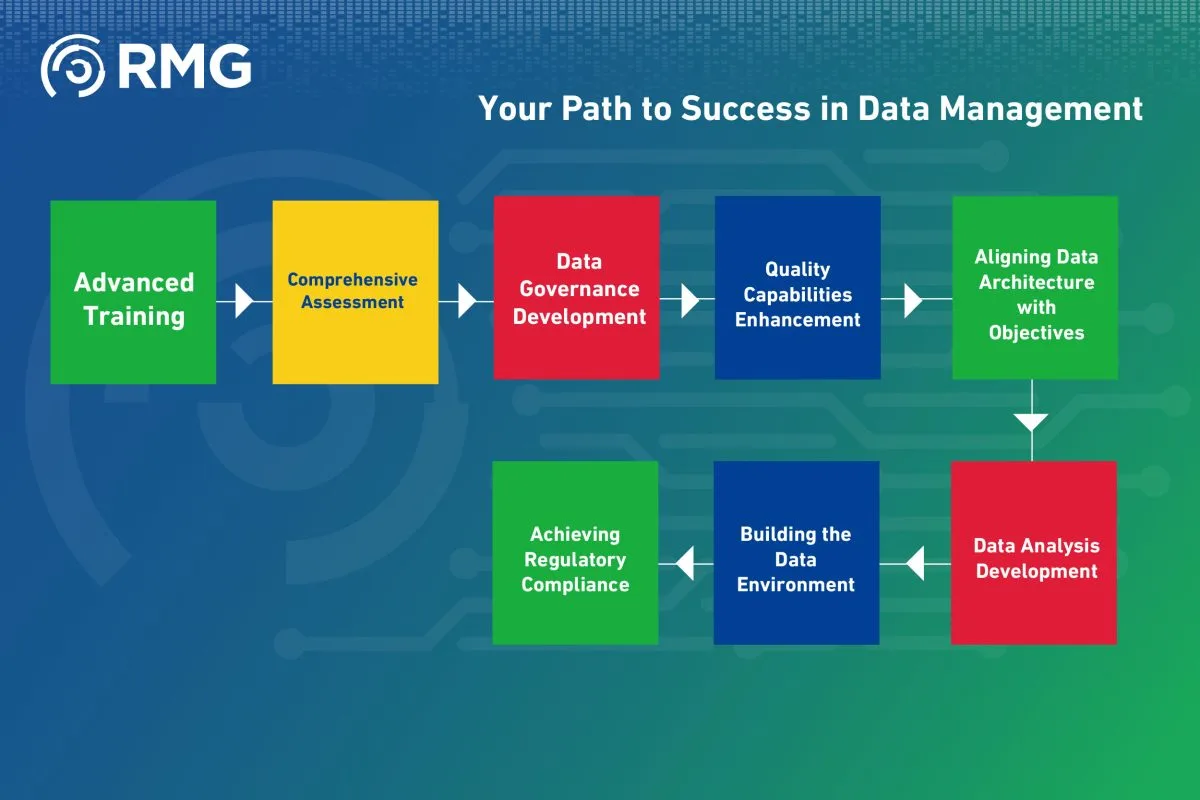
Aligning Global and Local Data Management: Renad Al Majd’s (RMG) Approach
Renad Al Majd Company (RMG) seeks to balance the application of global best practices in data management with meeting the local requirements of Saudi Arabia by integrating the global DCAM framework with the NDMO framework (National Data Management Office).
This integration enables Saudi institutions to build robust data management capabilities while ensuring compliance with national directives and policies.
Effective Data Management
DCAM and NDMO enhance data governance through advanced organizational structures, ensuring quality and efficiency. DCAM provides a model for assessing data management maturity within institutions, while NDMO focuses on setting national standards and policies aligned with the Kingdom’s objectives.
Data Governance
Data governance is a core pillar for both frameworks. Institutions in the Kingdom can use DCAM as a model to assess their compliance with NDMO requirements, ensuring the effective implementation of national policies and standards.
Data Quality
DCAM ensures data quality and evaluates and enhances the internal data quality within institutions. By focusing on data reliability and usability, DCAM supports Saudi institutions in complying with NDMO standards, which guarantee data reliability at the national level.
Data Architecture
In terms of data architecture, DCAM works on designing a structure based on business and technology needs. This design effectively applies data management solutions, aligning with NDMO guidelines for unifying data architecture and ensuring transparency and interoperability among Saudi institutions.
Analytics and Big Data Management
Renad Al Majd enhances the capability of institutions to handle big data and analytics through DCAM. DCAM focuses on organizing analytical activities within institutions, supporting aligning these activities with NDMO policies for data analysis and national decision-making.
Capability and Competency Assessment
Renad Al Majd provides an effective tool to assess data management maturity within institutions using DCAM. This assessment enables institutions to measure their performance and identify areas for improvement to ensure full compliance with NDMO national standards.
DCAM serves as a complementary framework to the NDMO framework in Saudi Arabia. While NDMO sets the national policies and standards, DCAM provides practical tools to evaluate and enhance data management capabilities within institutions, contributing to better collaboration among institutions and national bodies to achieve national data management goals efficiently and effectively.
Contact us
Choose Renad Al Majd as your trusted partner on your journey towards distinguished data management and sustainable innovation.













